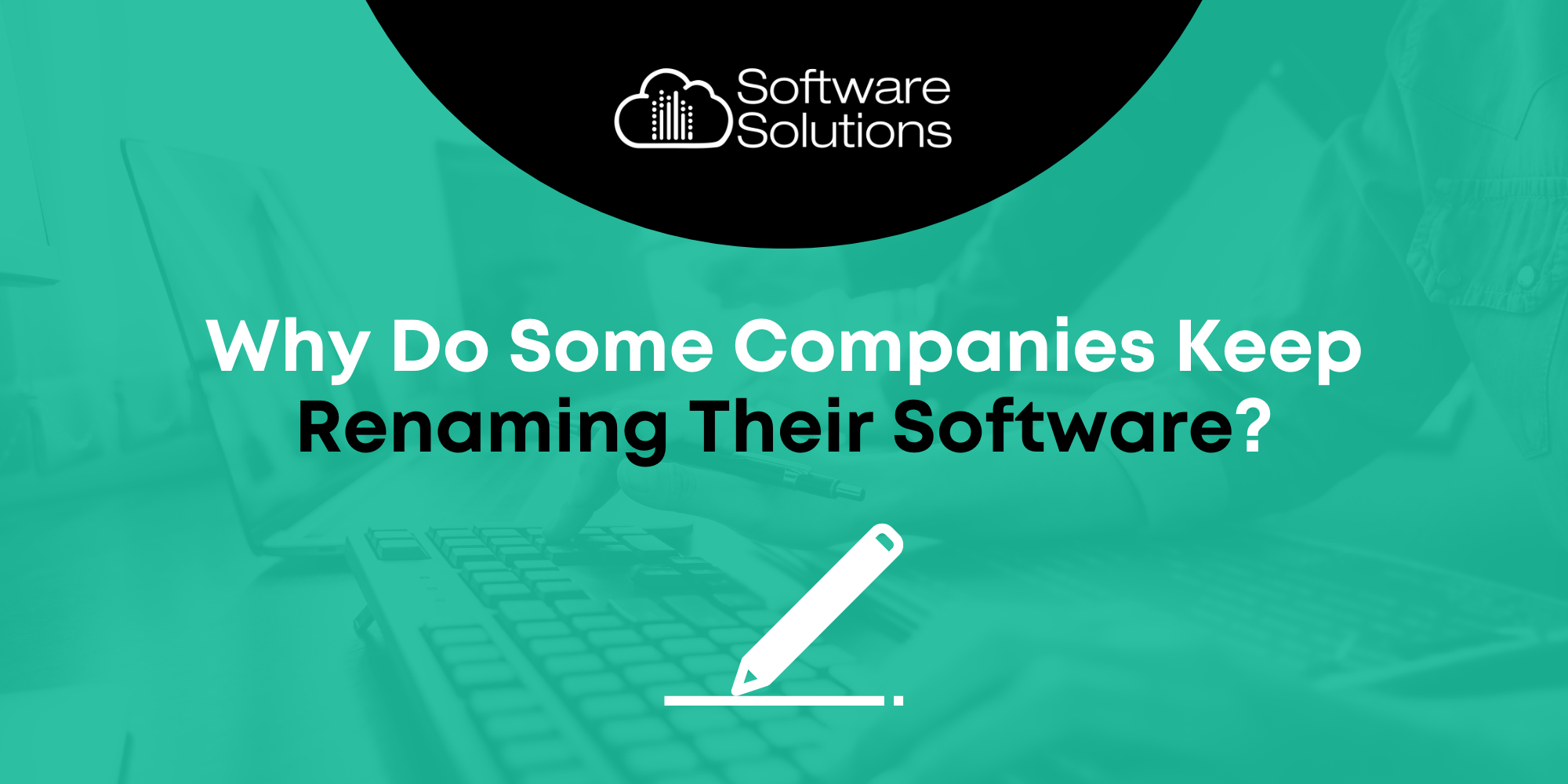4 min read
Why Do Some Companies Keep Renaming Their Software?
Sep 27, 2024 11:36:18 AM

Have you ever noticed that some software providers seem to frequently rename their products? You might be browsing a website one week, and by the next, their familiar offerings have been given entirely new names. If this seems like a red flag to you, that's because it is.
For the public sector, stability is important. You rely on clear, consistent tools to manage everything from payroll to fund accounting, and frequent rebranding can introduce unnecessary confusion. So, why do some companies keep renaming their software, and what might it mean for you as a potential customer? Let’s dig into 5 potential reasons.
1. Lack of Clear Direction
Constantly changing product names can be a sign of internal confusion or lack of focus. A company that keeps renaming its software modules might be struggling to define exactly what its product does and who it's for. It’s like walking into a store and finding that the labels on all the products have changed. Are you still getting the same product? Is it still gluten-free? Has the product improved, or are they trying to cover up past shortcomings?
As a finance professional, the last thing you need is uncertainty about the software you rely on! Your processes need to run like clockwork, and software should be the backbone that supports your work—not a moving target.
2. Masking Issues Instead of Solving Them
Another concern when companies rename their software is that they might be attempting to mask past performance issues. Let’s say a payroll module received negative feedback for being buggy or hard to use. Instead of improving the functionality and addressing customer concerns, the company might simply rebrand it, hoping to wipe the slate clean.
But here’s the problem: Renaming doesn’t fix the underlying issues. It’s a short-term fix that might make the software seem new, but if the same old problems persist, you may end up shouldering the burden of inefficient tools. Stability and reliability matter, and renaming a product doesn’t address the root of customer frustrations.
3. More Marketing Hype, Less Substance
When you see frequent product renaming, it can suggest that the company is more interested in marketing gimmicks than real innovation. Catchy new names might attract attention, but is the software itself any different? As a public sector employee, you need software that delivers real value—whether it's accounts payable automation, human resources management, or utility billing software—not something that’s simply been rebranded to stay trendy.
For local governments and public sector agencies, software is an investment. It’s not just about flashy names or new logos—it’s about ensuring your processes are streamlined, compliant, and efficient. So, when companies focus on renaming rather than meaningful upgrades, it can be a sign that they’re more concerned with optics than performance.
4. Creating Confusion and Extra Work
A constant renaming of software modules can create unnecessary confusion. If you have to keep track of what each product used to be called versus what it’s now named, that creates friction and extra work.
For example, if a module used to be named "Public Sector Payroll" but is now called "Workforce Time and Payroll Management Suite," how much time will it take for your team to reorient themselves? Will training materials need to be updated? Will your IT department have to field calls from users confused by the changes?
You're already balancing tight budgets and complex regulatory environments. Dealing with unnecessary changes in your software shouldn’t add to your workload.
5. Covering Up Overlap in Their Product Line
Sometimes, renaming software modules is a way for companies to hide overlaps in their product offerings. If two modules do essentially the same thing, they might be given different names to make it seem like the company is offering a wider range of services than it really is.
For example, a company might offer both "Fund Accounting Software for Cities" and "Municipal Budgeting Software," but if you dig into the details, they may turn out to be nearly identical products under different names. This can be frustrating, especially when public sector organizations need tailored solutions that meet specific needs, not a repackaged version of the same thing.
What Does This Mean for You?
Stability, transparency, and trust are critical. Whether you’re managing a local government’s utility billing system or ensuring compliance with ever-changing payroll regulations, you need software that’s clear, consistent, and built for the long haul.
At SSI, we believe that renaming products is rarely the solution. Instead, we focus on continuous improvement, so when you choose one of our solutions—whether it’s our VIP Accounting, VIP Payroll, or VIP Utility Billing—you know you’re getting software that will grow with you and your needs, not just a rebranded version of the same old thing.
We understand that you value dependability and clarity. That's why we invest in enhancing the functionality of our software, ensuring that our customers can rely on our products without worrying about unnecessary changes. While we stay on the cutting edge of technology, including secure cloud hosting and automation features, we never lose sight of what matters most: providing you with the tools you need to succeed.
Subscribe here
Related Posts
The City of Euclid Ohio moves to VIP Suite ~ Software Solutions
The City of Euclid in Ohio moved from a software system they were unhappy with to Software...
Defiance County, Ohio Makes the Switch to SSI ~ Software Solutions
Defiance County joins the growing number of County Auditors choosing to move to the robust Visual...
Hudson, Ohio ~ Software Solutions
Hudson, Ohio has recently chosen Software Solutions for their Utility Billing needs with the VIP...


-jpg.jpeg?width=869&height=151&name=Support%20Site%20Banner%20(1)-jpg.jpeg)